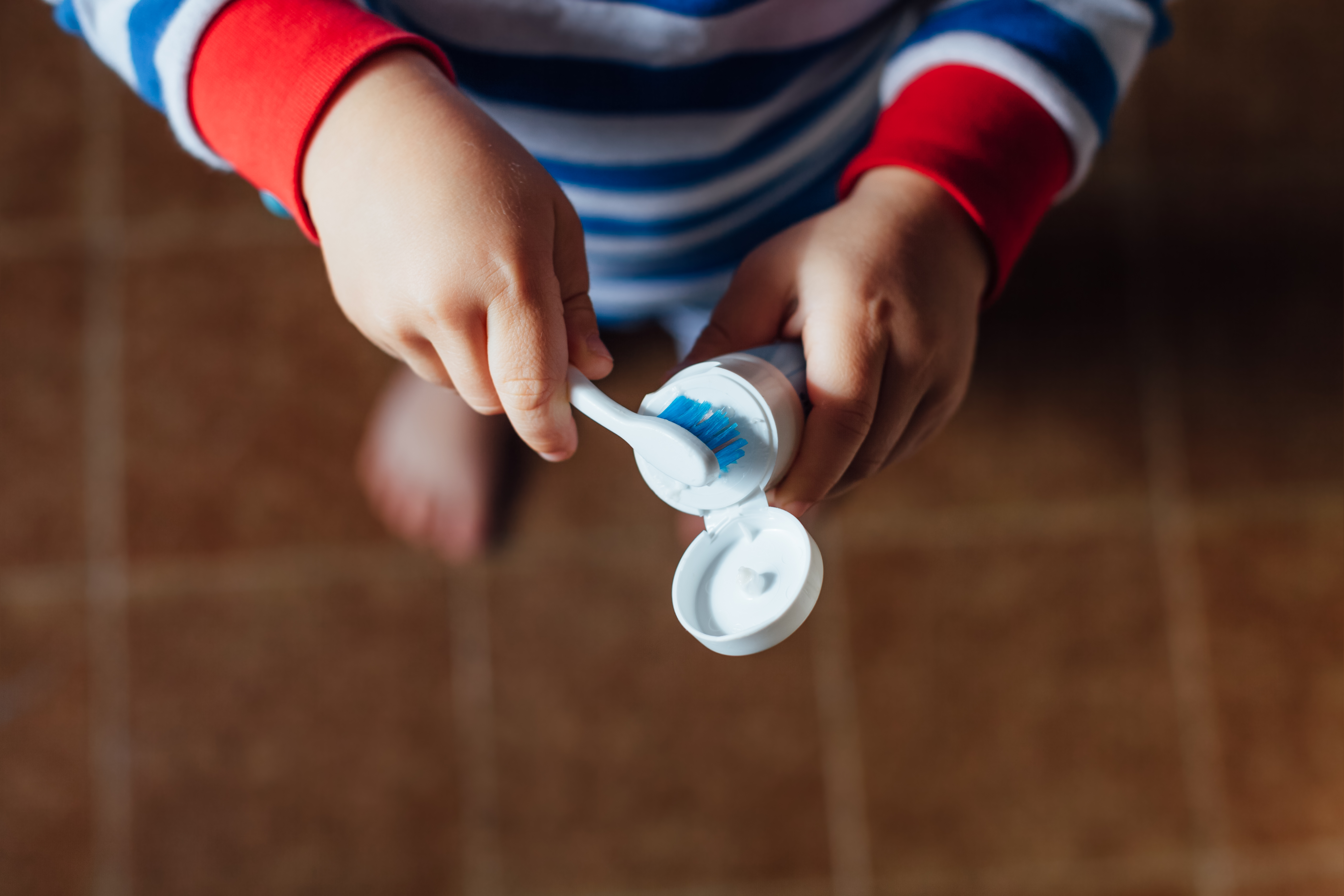
What are Dental Crowns?
A dental crown is a restoration that covers or “caps” a tooth, restoring it to its normal size and shape while strengthening and protecting it from further cracking or breakage.
Why Dental Crowns Are Used
Dental crowns are used to restore a tooth that is decayed or damaged and cannot be mended with a dental filling. If your child’s dentist has to remove a significant amount of decay, they may recommend a dental crown to cap the tooth and bring it back to its natural state to help your child achieve a happy and healthy smile.
Stainless Steel vs. White Dental Crowns
Stainless steel crowns are exactly what they sound like – silver, stainless steel caps that cover your back teeth. Stainless steel crowns are a great option because they preserve more of the tooth structure than other types of crowns. Thanks to the strength of stainless steel, they can withstand the forces of biting and chewing with less risk of breaking, cracking or chipping. Stainless crowns are often used on young patients when a crown that can adapt to growing mouth is needed for kids who are in active occlusion.
White crowns, which tend to be more cosmetically pleasing, are used to strengthen decayed front teeth. Commonly referred to as strip crowns, white crowns are typically made of a composite resin. When white crowns are used on back teeth, they are made of a porcelain fused to metal material and are more commonly used on adults. Due to the rigidity, they work better when a mouth is done growing when it comes to placing them on molars.
How Many Visits are Needed for Dental Crowns to Be Completed?
A dental crown procedure is simple! The application of dental crowns for children is generally completed in one visit. With regular dental care and routine cleanings, most crowns will last until they are replaced by adult teeth.
What to Expect After Your Procedure
Immediately following the procedure, please keep your child from eating until the numbness has subsided. This will keep them from biting their lip, cheek or tongue, resulting in injury.
Your child may experience some discomfort for up to 24 hours after the procedure. This discomfort, caused by the irritation of the tooth’s pulp and soft tissue, is completely normal and can be managed with children’s ibuprofen or acetaminophen. If any pain or discomfort continues for longer than 24 hours, please contact your child’s dentist immediately.
Ways to Prevent Needing a Dental Crown
Crowns can be avoided by maintaining great oral care, but accidents do happen. Here are ways that your child can prevent needing a dental crown:
- Wear a mouthguard during sports activities
- Bite down on foods carefully
- Talk to your child’s dentist about teeth grinding
- Brush your teeth properly, twice a day
- Floss daily
- Don’t use your teeth as a tool or an instrument
- Don’t wait to get a cavity filled
Taking care of your teeth from a young age is the key to healthy smiles for life! So, before you bite into that ketchup packet, grab some scissors and save those teeth.
Children’s Dental Crown FAQs
Is Getting Dental Crowns Painful?
Getting a dental crown is not a painful procedure. Following the procedure, your child may feel some discomfort where the crown has irritated the pulp or soft tissue around the tooth. Children’s ibuprofen or acetaminophen can help ease the discomfort. If discomfort or any pain lasts more than 24 hours, call your child’s dentist immediately.
Can a Dental Crown Fall Off?
In some cases, a dental crown can fall off. This is typically due to an ill-fitted crown or lack of cement to hold the crown in place. You can replace the crown temporarily with over-the-counter dental adhesive. Call your child’s dentist immediately. They will provide instructions on how to manage the crown before you can be seen.
Does a Crowned Tooth Require Special Care?
A crowned tooth doesn’t necessarily require special care, but the crown does not protect the tooth from tooth decay or gum disease. Remember, treat it like a normal tooth and pay extra attention to the gumline around the crown when flossing. Proper brushing and flossing will keep your crown clean and happy, so your child can have a healthy smile.
How Long Does a Crown Stay on Your Teeth?
A dental crown should stay on your child’s tooth until it is replaced with an adult tooth. The lifespan is typically five to 15 years, but “wear and tear” (teeth grinding, chewing ice, and biting fingernails) does play a role. Help your child take care of their crown just like their normal teeth, and they’ll have a lifetime of healthy smiles.
How Can I Protect a Dental Crown?
Protecting a dental crown is just like protecting all of your teeth. A few things to do to protect your teeth are:
- Wear a mouthguard during sports activities
- Bite down on foods carefully
- Talk to your child’s dentist about tooth grinding
- Brush your teeth properly, twice a day
- Floss daily
- Don’t use your teeth as a tool or an instrument




 Find Us
Find Us